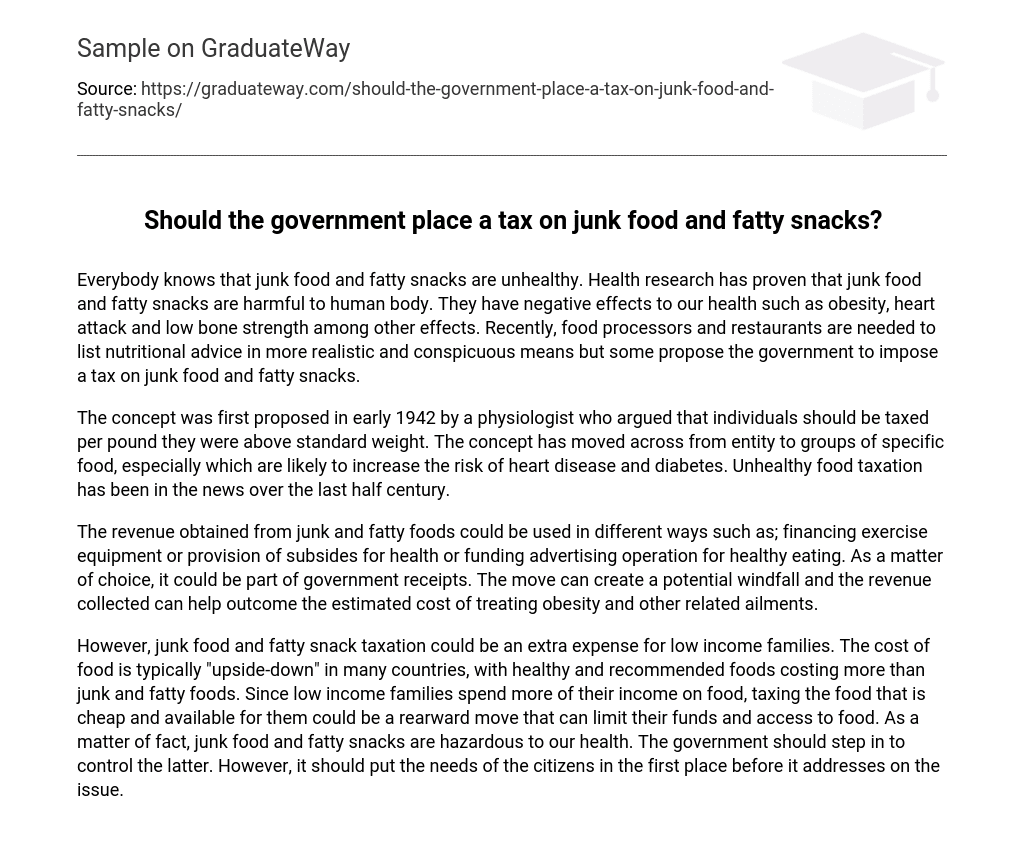Everybody knows that junk food and fatty snacks are unhealthy. Health research has proven that junk food and fatty snacks are harmful to human body. They have negative effects to our health such as obesity, heart attack and low bone strength among other effects. Recently, food processors and restaurants are needed to list nutritional advice in more realistic and conspicuous means but some propose the government to impose a tax on junk food and fatty snacks.
The concept was first proposed in early 1942 by a physiologist who argued that individuals should be taxed per pound they were above standard weight. The concept has moved across from entity to groups of specific food, especially which are likely to increase the risk of heart disease and diabetes. Unhealthy food taxation has been in the news over the last half century.
The revenue obtained from junk and fatty foods could be used in different ways such as; financing exercise equipment or provision of subsides for health or funding advertising operation for healthy eating. As a matter of choice, it could be part of government receipts. The move can create a potential windfall and the revenue collected can help outcome the estimated cost of treating obesity and other related ailments.
However, junk food and fatty snack taxation could be an extra expense for low income families. The cost of food is typically “upside-down” in many countries, with healthy and recommended foods costing more than junk and fatty foods. Since low income families spend more of their income on food, taxing the food that is cheap and available for them could be a rearward move that can limit their funds and access to food. As a matter of fact, junk food and fatty snacks are hazardous to our health. The government should step in to control the latter. However, it should put the needs of the citizens in the first place before it addresses on the issue.





